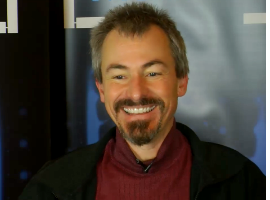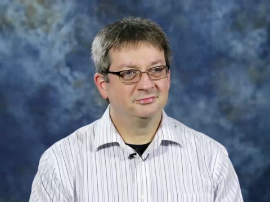InfoQ Homepage Interviews
-
Bryan Beecham on XP Not Dead
Bryan Beecham (aka Billy Garnet) reminds us that "XP not dead!" and shares his approach to teaching TDD and refactoring with Lego and applying XP and craftsmanship in teams as well as the human body.

-
Francesco Cesarini and Viktor Klang on the Reactive Manifesto
Francesco Cesarini and Viktor Klang explain the motivation behind the Reactive Manifesto and what exactly it brings to the table. Also: what Erlang and Scala/Akka can learn from each other.

-
Rebecca Parsons and Phil Brock on Agile 2013 and the Agile Alliance Goals
The Agile 2013 conference was held in August 2013. Rebecca and Phil talk about the conference keynotes, number of sessions and the diversity of attendees. They also discuss the internationalization and breadth of the activities and goals of the Agile Alliance and how the Alliance is an inclusive organization encompassing many different agile approaches and brands.

-
Cliff Click on In-Memory Processing, 0xdata H20, Efficient Low Latency Java and GCs
Cliff Click explains 0xdata's H20, a clustering and in-memory math and statistics solution (available for Hadoop and standalone), writing H20's memory representation and compression in Java, low latency Java vs GCs, and much more.

-
Gil Broza on Individuals and Interactions, Empathic Leadership and Growing solid Teams
Gib Broza talks about his book "The Human Side of Agile", how to become an empathic leader, building solid teams that provide enduring and stable high performance. He provides some pragmatic advice for leaders in self-organizing agile teams on how create and nurture an environment which brings out the best in the team members.

-
Johanna Rothman on Employing the Right People, Getting Employed and Program Management
Johanna Rothman talks about the cost of multi-tasking, recruiting the correct people for your team and organization, managing your own job search. She goes on to discuss how to scale Lean and Agile approaches to large programs of work by decreasing batcg sizes, improving flow and using small-world networks to create collaborative ecosystems.

-
Neal Ford on Giving Technical Presentations
Neal Ford shares tips and techniques he's learned from his experience on how to become a better presenter. He offers a number of strategies that can help you give good technical presentations and develop better slide decks.

-
Andrew Betts on Developing for Mobile with HTML5
Andrew Betts, founder of FT labs, discusses emerging trends in mobile development using web technologies, the benefits of developing for the web over building native, the difficulties of dealing with browsers and tooling.

-
Pollyanna Pixton on Collaborative Leadership
Pollyanna is collaborating with two others to write a book on Collaborative Leadership. In this interview she gives an overview of how leadership needs to promote ownership, build a culture of trust and a focus on value for both customers and the organization to enable the formation of high-performing teams.

-
Gabrielle Benefield on Flexible Contracts
Gabby Benefield has spent much of the last three years working on a contracting model that is outcomes focused and allows customers and suppliers to overcome the barriers inherent in most contracts. The most common contracting models in use today (fixed scope or time-and-materials) actually increase risk in software development. She has worked with IT lawyer Susan Atkinson to develop an alternate

-
Laurent Bossavit on Creating an Archive of Agile Knowledge and the Art of Being Wrong
Laurent is the Archivist for the Agile Alliance, creating a repository of conference sessions and other knowledge the Alliance collects. He also examines the value of being wrong (and being able to admit it) which he has written and spoken about extensively.

-
Joshua Kerievsky on Anzen and Safety in Software
Joshua Kerievsky tells us about Anzen and his experience in taking the concept of safety from the manufacturing world and tailoring it to software development teams and organizations. By having ONE core value - safety - teams and organizations can keep from falling into the common pattern of practicing a superficial form of Agile and/or Lean development without getting any of the results.
